Mold is a common household problem that can have serious health implications. Mold spores can trigger an immune response in some individuals that can result in symptoms such as congestion, headaches, and fatigue. In more severe cases, exposure to mold can even result in chronic sinus infections. With mold being a common issue in many homes, it's essential to understand the link between mold and sinus infections and take the necessary precautions to protect your health.
Exposure to mold can have various health risks. They will depend on the individual's sensitivity, as well as the length or extent of mold exposure. Some people may experience no symptoms, while others can develop mild to severe health problems. The most common health risks associated with mold exposure include allergic reactions, respiratory issues, and infections.




Mold exposure can lead to sinus infections by triggering an immune response in some individuals. When mold spores are inhaled, they can irritate the lining of the nasal passages, sinuses, and respiratory system, leading to inflammation and swelling. This inflammation can cause the sinuses to become blocked, preventing mucus from draining properly and creating a breeding ground for bacteria to grow.
The body's immune response to mold can also contribute to sinus infections. The immune system recognizes mold as a foreign substance and releases antibodies to attack it. This immune response can cause further inflammation and swelling, making it harder for the sinuses to drain properly.
Mold also can produce mycotoxins, which are toxic substances that can cause damage to the respiratory system and weaken the immune system. This can cause individuals to be more vulnerable to infection. People with pre-existing respiratory conditions such as asthma or allergies are more susceptible to mold-related sinus infections. Prolonged exposure to mold or exposure to high levels of mold spores can also increase the risk of developing sinus infections.
Mold-related sinus infections can cause a variety of symptoms, including:
The treatment of a mold-induced sinus infection typically involves a combination of approaches, including:
If you are experiencing severe symptoms, such as high fever, severe pain, or difficulty breathing, you should seek medical attention right away. These symptoms may indicate a more serious condition and require immediate medical attention.
If your symptoms are not severe but are persistent or getting worse, you should make an appointment with your healthcare provider as soon as possible. Mold-related sinus infections can lead to complications if left untreated, so it is important to seek medical attention promptly.
If you suspect that indoor mold may be the cause of your sinus infection, you will need to address the source of the mold to prevent further exposure. It is important not to attempt DIY mold removal, and instead seek the assistance of FDP Mold Remediation. Here's why:
Preventing mold-related sinus infections involves preventing exposure to mold spores. Here are some steps you can take to prevent mold growth in your home and reduce your risk of mold-related sinus infections:
Control indoor humidity. Keep the indoor humidity levels between 30-50% to prevent mold growth. You can use a dehumidifier to help maintain the appropriate humidity level in your home.
Ventilate. Make sure to have proper ventilation in your home, especially in areas such as the bathroom, kitchen, and laundry room. Use exhaust fans to remove excess moisture from the air.
Inspect your home. Regularly inspect your home for any signs of mold growth or water damage, especially in areas such as the basement, attic, and crawlspace.
Suffering from sinus infections can significantly impact one's quality of life. However, detecting mold growth in your home can be difficult. If you suspect that mold is the underlying cause of your sinus infections, it is recommended to contact a professional mold remediation company like us that specializes in mold removal.
By providing our service across different states allows us to help more people in different regions who are in need of mold removal and prevention. FDP Mold Remediation has the necessary knowledge and equipment to safely and effectively eliminate mold and prevent further contamination, ensuring the health and well-being of you and your loved ones.



